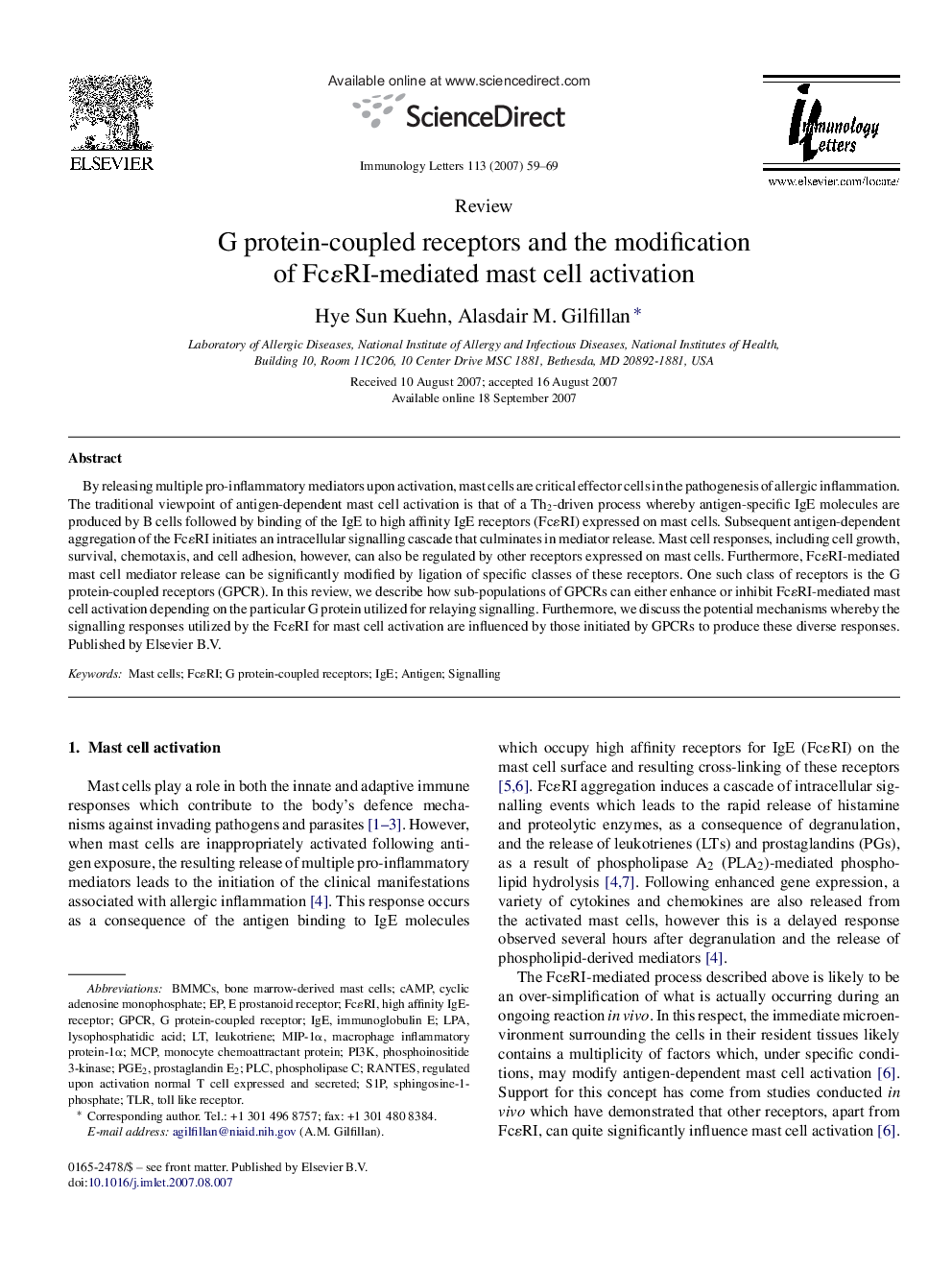| Article ID | Journal | Published Year | Pages | File Type |
|---|---|---|---|---|
| 3356292 | Immunology Letters | 2007 | 11 Pages |
By releasing multiple pro-inflammatory mediators upon activation, mast cells are critical effector cells in the pathogenesis of allergic inflammation. The traditional viewpoint of antigen-dependent mast cell activation is that of a Th2-driven process whereby antigen-specific IgE molecules are produced by B cells followed by binding of the IgE to high affinity IgE receptors (FcɛRI) expressed on mast cells. Subsequent antigen-dependent aggregation of the FcɛRI initiates an intracellular signalling cascade that culminates in mediator release. Mast cell responses, including cell growth, survival, chemotaxis, and cell adhesion, however, can also be regulated by other receptors expressed on mast cells. Furthermore, FcɛRI-mediated mast cell mediator release can be significantly modified by ligation of specific classes of these receptors. One such class of receptors is the G protein-coupled receptors (GPCR). In this review, we describe how sub-populations of GPCRs can either enhance or inhibit FcɛRI-mediated mast cell activation depending on the particular G protein utilized for relaying signalling. Furthermore, we discuss the potential mechanisms whereby the signalling responses utilized by the FcɛRI for mast cell activation are influenced by those initiated by GPCRs to produce these diverse responses.
